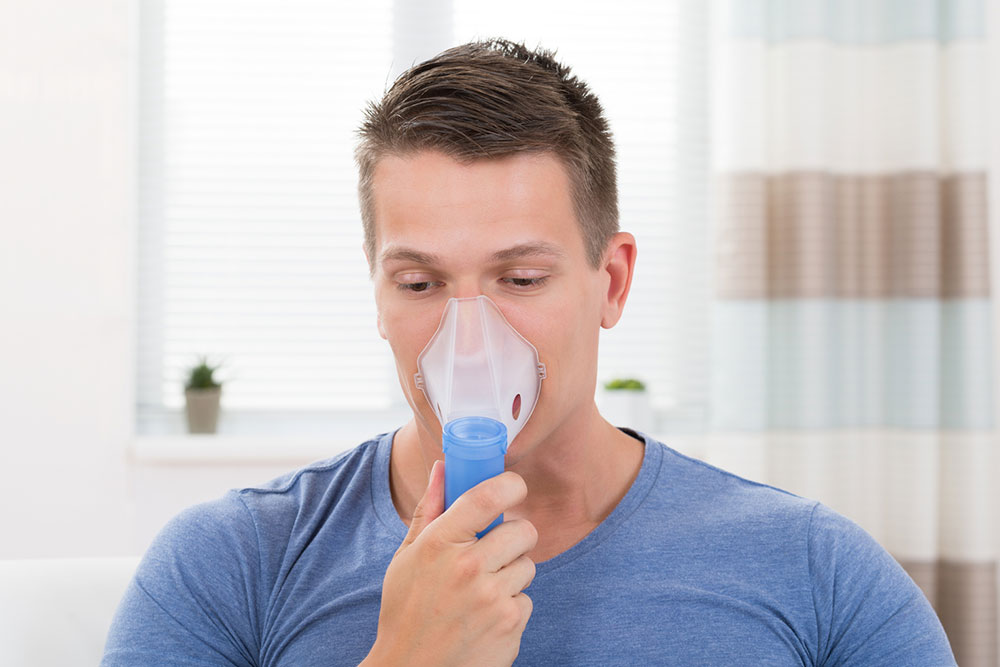Comprehensive Natural Approaches to Effectively Manage COPD and Improve Quality of Life
Learn effective natural strategies to manage COPD, including lifestyle changes, dietary tips, and therapies like oxygen assistance and inhaler use. Improve breathing, reduce symptoms, and enhance quality of life with proven approaches tailored for chronic respiratory health.

Comprehensive Natural Approaches to Effectively Manage COPD and Improve Quality of Life
Chronic Obstructive Pulmonary Disease (COPD) is a chronic, progressive respiratory disorder that significantly impacts millions worldwide. Characterized by persistent airflow limitation, COPD includes conditions such as chronic bronchitis, emphysema, and various forms of airflow obstruction. Although there is currently no cure for COPD, employing natural management strategies can markedly alleviate symptoms, slow disease progression, and enhance the overall quality of life for those affected. This comprehensive guide delves into effective lifestyle changes, dietary recommendations, and supportive therapies that can be incorporated into daily routines to help COPD patients breathe easier and live better.
Minimize Exposure to Harmful Pollutants and Smoke
One of the most critical steps in managing COPD naturally is avoiding exposure to environmental pollutants. Tobacco smoke remains the primary trigger for exacerbations and disease progression. Both active smoking and secondhand fumes can cause inflammation and damage to lung tissues. Therefore, quitting smoking or avoiding places with high smoke levels is essential. Additionally, indoor pollutants such as cooking fumes, heating emissions, and household chemicals can aggravate COPD symptoms. Using air purifiers, ensuring proper ventilation, and avoiding dusty or polluted environments can substantially reduce the burden on your lungs. Regularly checking air quality indices can help you plan outdoor activities when pollution levels are low, minimizing adverse effects.
The Role of Inhalers and Medications in COPD Care
Inhalers are vital tools in the management of COPD, delivering anti-inflammatory or bronchodilator medications directly to the lungs. Quick-relief inhalers provide immediate symptom relief during flare-ups, whereas long-acting inhalers help maintain baseline control. It’s crucial for patients to adhere to their prescribed inhalation regimens and consult healthcare providers for adjustments as needed. Proper inhaler technique ensures maximum medication delivery and effectiveness. Complementing inhaler use with natural strategies amplifies overall disease control.
Maintaining a nutritious and balanced diet plays a vital role in managing COPD. Emphasize consumption of fresh fruits, colorful vegetables, and whole grains that provide essential vitamins, minerals, and antioxidants. Nutrients like vitamins C and E support immune function and reduce inflammation. In contrast, limit intake of processed foods, saturated fats, and dairy products that can increase mucus production or obstruct airflow. Proper nutrition supports energy levels, strengthens respiratory muscles, and enhances overall health.
Utilize Oxygen Therapy for Improved Breathing
For individuals with advanced COPD, supplemental oxygen therapy can significantly enhance oxygenation. Devices such as portable oxygen cylinders, concentrators, or liquid oxygen systems are used to maintain adequate blood oxygen levels. Regular oxygen therapy can alleviate symptoms such as shortness of breath, improve exercise capacity, and promote better sleep. Adherence to oxygen therapy regimens, combined with lifestyle modifications, can potentially extend lifespan and improve daily functioning.
Staying well-hydrated is another natural strategy that eases mucus clearance from the lungs. Drinking at least eight glasses of water daily helps thin mucus secretions, facilitating easier expulsion and reducing coughing and wheezing. Additionally, using humidifiers at home adds moisture to the air, preventing dryness of the respiratory passages and decreasing irritation. Incorporating these natural and supportive therapies into daily routines empowers COPD patients to manage their condition more effectively, ultimately leading to a better quality of life. Consistency, regular medical check-ups, and lifestyle discipline are key to successful COPD management.





